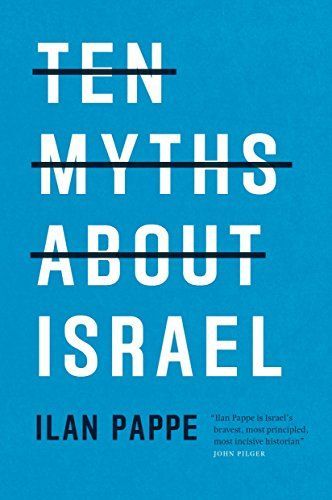
Ten Myths about Israel
What are the myths--and reality--behind the state of Israel? Ilan Pappe is one of the most outspoken and radical thinkers writing on the history of Israel. In this groundbreaking and controversial book he examines ten of the most contested ideas concerning the origins and identity of the contemporary state of Israel. Once and for all he explodes the myths that justify the rights of the Israeli state, asking, - Was Palestine an empty land at the time of the Balfour Declaration? - Were the Jews a people without a land? - Is there no difference between Zionism and Judaism? - Is Zionism not a colonial project of occupation? - Did the Palestinians leave their homeland voluntarily in 1948? - Was the June 1967 War a war of -no choice-? - Is Israel the only democracy in the Middle East? - Were the failed Oslo negotiations of 1992 the PLO's fault? - Was it a question of national security to bomb Gaza? - Is the Two States Solution still achievable? Written for the general reader, this book will prompt a huge, and necessary, debate.
Reviews
Sophia @phiabia
Yaffa@msmusyaffa
addie@addieisreading
Charlie@therosepages
taryn@tarynbrickner
Najmi Indot@najmiindot
keyzia@mymelody
Nathan Knowler@knowler